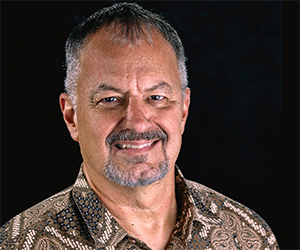[responsivevoice_button voice=”US English Male” buttontext=”Listen to this Feature” buttoncolor:”blue”]
Remember when being able to disagree was something we saw from various leaders in politics, business, entertainment? I was reminded of one of the very best example recently, midway through the movie Reagan, in a scene when Christian entertainer Pat Boone and evangelist George Otis Sr. visit Ronald Reagan when he’s running for reelection for governor of California. As the men stand outside the governor’s mansion in Sacramento, Otis gives a prophetic message from God to Reagan: “If you walk uprightly before Me, you will reside at 1600 Pennsylvania Avenue.”
That scene wasn’t fabricated. It really happened. One eyewitness of that moment, author Bob Slosser, said charismatic preacher Harold Bredeson was also with Otis and Boone when they prayed for Reagan that day in 1970. Otis recalled that after he gave Reagan the prophecy, Reagan simply looked up from the prayer circle and said, “Well…” as if he were filing away the profound words in his heart for a later time. Otis’ prophecy was fulfilled in 1980. Ronald Reagan became the 40th president of the United States, and he is remembered most for courageously confronting communism and helping to dismantle the Soviet Union.
Nobody is surprised that critics don’t like Reagan. But while elitist film reviewers gave it low ratings, audiences gave it a 98% score on Rotten Tomatoes. Critics today wouldn’t dare give four stars to any movie that has wholesome values or that portrays Christianity in a positive light. But Reagan was doubly doomed by critics even before it was screened because several actors in the film—including Dennis Quaid, who plays Reagan like he was born for the role—have publicly endorsed the Republican ticket in the 2024 election.
The film depicts Reagan’s life, with much of the story narrated by a Russian observer, Viktor Petrovich (Jon Voight), fascinated by the idea that God was on Reagan’s side during the Cold War years. While the Petrovich character is a composite of several Russians who observed Reagan’s tough diplomacy from a distance, he reminds us that Soviet communists struggled to understand what made Reagan so successful.
The movie is not revisionist history. Ronald Reagan did in fact grow up with a Christian mother who instilled faith and character in him from his earliest years in small-town Illinois, just as the film portrays. Reagan was in fact baptized while attending the First Christian Church in Dixon, Illinois. He did in fact read a Christian book at age 11 called The Printer of Udell’s, written by a Christian minister; the book shaped the course of Reagan’s life.
A Christian preacher did in fact prophesy in 1970 that Reagan would become president. And when Reagan was almost assassinated in front of the Washington Hilton on March 30, 1981, just months after his landslide election victory, he really did rededicate his life to God. He wrote in his journal after the bullet went into his side: “Whatever happens now I owe my life to God and will try to serve Him in every way I can.”
We all know Reagan wasn’t perfect, and the film shows plenty of his rough edges—including his failed first marriage and his bungling of the Iran-Contra affair during his second term. But Reagan focuses on this remarkable man’s courage in the face of the threat of communism. It seems that the remarkable actor turned politician was destined to hurl the rock that brought down the Goliath of Soviet tyranny.
Reagan inspired me in several ways. I realized that when our nation faced one of its most formidable challenges, God raised up a humble yet bold man to lead us. I saw that God spent years preparing Ronald Reagan for his difficult task, and He even sent Spirit-filled ministers to pray for him ahead of time. And I was reminded how desperately we need leaders today who carry the authentic fire of freedom in their hearts.
Critics are whining that Reagan is too positive, too patriotic and too inspirational. They say the film should have been more critical of the former president’s flaws. I disagree. America could use a big jolt of inspiration right now to save us from an epidemic of cynicism.
It is both encouraging and reassuring to be reminded that there are examples of bold, godly leaders who once showed us that it is, in fact, possible to agreeable disagree, and leave behind spirits of division and hopelessness.
J. Lee Grady was editor of Charisma for 11 years and now serves as senior contributing editor. He directs the Mordecai Project, an international ministry that protects women and girls from gender-based violence. His latest books are Follow Me and Let’s Go Deeper (Charisma House).












































